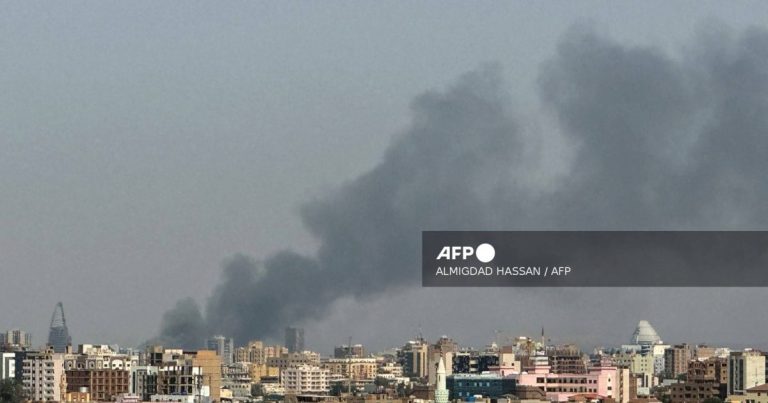A drone attack on one of the last functioning hospitals in El-Fasher in Sudan’s Darfur region has killed 67 people and injured dozens, local activists and a medical source said on Saturday.
“Thirty-seven of those injured in the drone strike yesterday died today, bringing the number of victims up to 67,” the source told AFP, requesting anonymity for fear of retaliation.
He added that a number of those injured were still being treated but could not give an exact figure.
The bombing of the Saudi Hospital late Friday had “led to the destruction” of the hospital’s emergency building, the source said.
AFP could not independently verify which of Sudan’s warring sides had launched the attack.
Since April 2023, the Sudanese army has been at war with the paramilitary Rapid Support Forces (RSF), who have seized nearly the entire vast western region of Darfur.
Since May, they have besieged El-Fasher, the state capital of North Darfur, but have not managed to claim the city where army-aligned militias have repeatedly pushed them back.
Last week, the RSF issued an ultimatum demanding army forces and allies leave the city by Wednesday afternoon in advance of an expected offensive.
Local activists have reported intermittent fighting since, including repeated artillery fire from the RSF on the famine-hit Abu Shouk displacement camp.
On Friday morning alone, heavy shelling killed eight people in the camp, according to civil society group the Darfur General Coordination of Camps for the Displaced and Refugees.
The United Nations has voiced alarm, calling on both parties to ensure the protection of the city’s civilian population — some two million people.
“The people of El-Fasher have suffered so much already,” Seif Magango, spokesman of the UN rights office, said Wednesday.
– RSF drones –
According to the medical source, the Saudi Hospital’s emergency building had been hit by an RSF drone “a few weeks ago”.
Between December 9 and January 14, Yale University’s Humanitarian Research Lab observed three advanced drones at the RSF-controlled Nyala Airport, some 200 kilometres (124 miles) south.
In its report, it said the Chinese-made drones have “significant electronic surveillance and warfare capabilities and can be equipped with air-to-ground munitions”, but could not verify which countries had purchased them.
The United Arab Emirates has been repeatedly accused of funnelling weapons, including drones, to the RSF.
United Nations experts determined in December 2023 that the allegations were “credible,” but Abu Dhabi has issued repeated denials in the face of mounting international criticism.
In December, it assured the Joe Biden administration that it was “not now transferring any weapons” to the RSF.
But on Friday, two US lawmakers said the UAE had violated its promises to Washington and “is continuing to provide weapons” to the RSF — who the United States concluded earlier this month had committed “genocide” in Darfur.
– Army gains –
The RSF’s latest attempt to consolidate its hold on war-ravaged Darfur — a vast region about the size of France, home to a quarter of Sudan’s population — comes as the army claims significant victories elsewhere.
Some 850 kilometres east, army chief Abdel Fattah al-Burhan on Saturday toured the Jaili oil refinery, the country’s largest, a day after his forces reclaimed it.
In a statement, his ruling Transitional Sovereignty Council said Burhan “pledged to rebuild what the militia had destroyed” and rehabilitate a key economic resource.
The military on Friday also broke a paramilitary siege on its Khartoum headquarters, which the RSF had encircled since the war began in April 2023.
Earlier this month, the army successfully wrested control of key state capital, Wad Madani, just south of Khartoum, from the RSF.
Since the war began, both the army and the RSF have been accused of war crimes, including targeting civilians and indiscriminately shelling residential areas.
Before leaving office on Monday, the Biden administration sanctioned Burhan, accusing the army of attacking schools, markets and hospitals and using food deprivation as a weapon of war.
Across the country, up to 80 percent of healthcare facilities have been forced out of service, according to official figures.
In El-Fasher, where ambulances and hospital buildings have been routinely targeted, medical charity Doctors Without Borders said this month the Saudi Hospital was “the only public hospital with surgical capacity still standing.”
The war has so far killed tens of thousands, uprooted more than 12 million and brought millions to the brink of mass starvation.
In the area around El-Fasher, famine has already taken hold in three displacement camps — Zamzam, Abu Shouk and Al-Salam — and is expected to expand to five more areas, including the city itself, by May, according to a UN-backed assessment.
